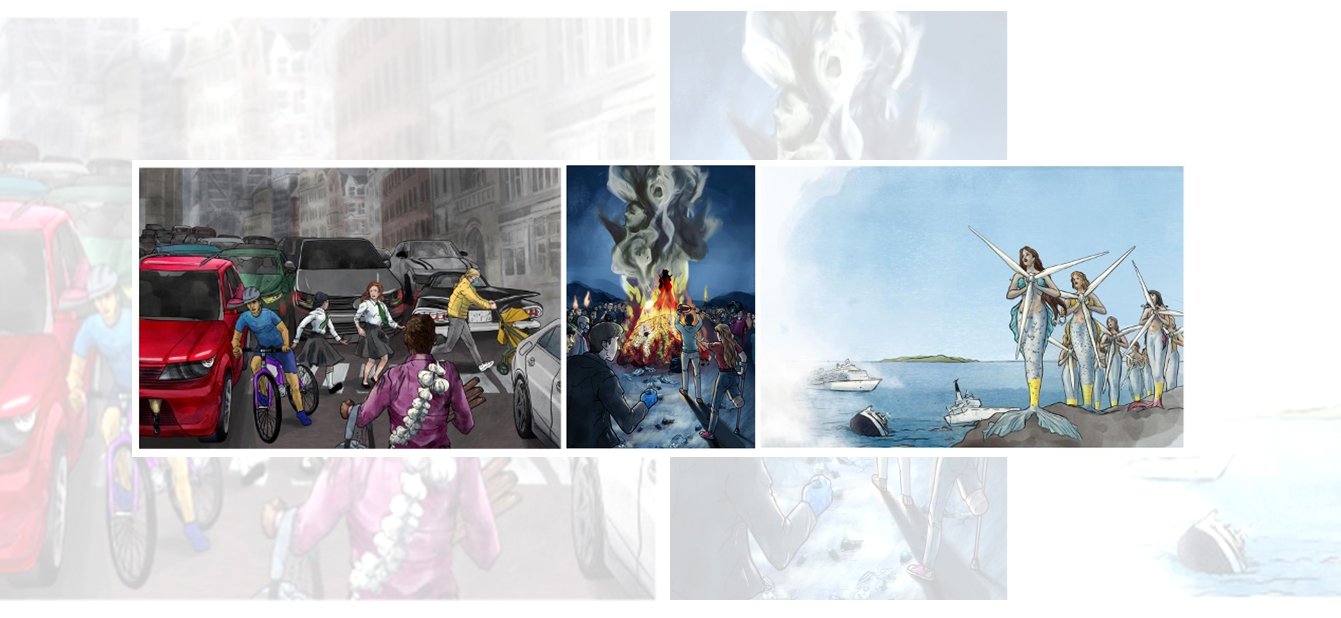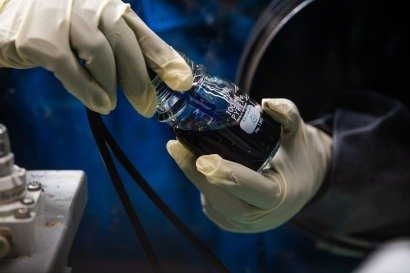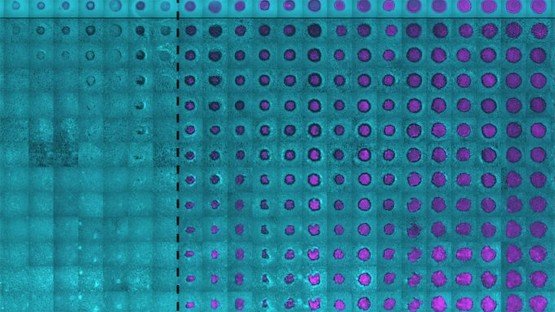© Véronique Heijnsbroek: www.visitveronique.com
Utilizing fairy story characters – mermaids, vampires, and witches – as metaphors, the group have sought to speak sometimes sophisticated arguments in evocative and interesting phrases
A group of researchers, led by Lancaster College, has been creating accessible and artistic technique of speaking sustainability analysis from the social sciences for policymakers and the broader public.
Utilizing fairy story characters – mermaids, vampires, and witches – as metaphors, the group, together with researchers from the Universities of Strathclyde and Manchester, have sought to speak sometimes sophisticated arguments in evocative and interesting phrases.
Their paper, ‘Telling Tales’: Speaking UK power analysis by means of fairy story characters, has been revealed within the journal, Power Analysis & Social Science.
Responding to a few of the challenges of local weather change (electrical energy era, low-carbon transport, plastic air pollution), the analysis group current three ‘telling tales’. These ‘translate’ current tutorial analysis, taking inspiration from well-known fairy story characters, to solid this analysis in an accessible and highly effective mild:
Renewables are mermaids – alluring and engaging options for policymakers to growing power calls for, however a distraction from different essential routes to Internet Zero, like demand discount. Like mermaid figureheads on sailors’ ships, renewables ought to accompany our transition to Internet Zero however they shouldn’t be the one vacation spot.
Automobiles are vampires – harmful entities which are lethal and sucking the wellbeing from communities by dividing divide workplaces and retailing shops from houses, creating prolonged commutes. Policymakers have, till now, waved garlic at them, to regulate how briskly and the place they journey, moderately than reaching for the stake and re-imagining on a regular basis life with out automobiles.
Plastics are witches – a fancy class that’s, say the analysis group, misunderstood by the present witch-hunt in opposition to plastics. Although they are often harmers (e.g. single-use plastics), additionally they have ‘therapeutic’ properties (i.e. sturdy and helpful supplies that may substitute extra damaging supplies). Policymakers ought to work in the direction of techniques of re-use to maximise their advantages, moderately than merely ‘demonising’ plastics on the whole.
Having developed these tales, the group labored with illustrator Véronique Heijnsbroek to create a variety of inspiring photographs.
This work responds to the Intergovernmental Panel on Local weather Change (IPCC) name for ‘transformational adaptation’. This paper affords critical messages and various coverage approaches with the goal to accessibly talk the varieties of shifts that this can contain:
– Renewables, although essential, should not the one measure required by a way forward for fossil-free electrical energy era. Demand discount, although a much less engaging answer, should be thought-about to make sure this future is feasible.
– Automobiles are identified to be lethal and harmful, but we have now designed each day life and society round their use. Extra stringent measures are required when pondering of what position they need to play in future societies.
– Plastics are presently demonised. Plastics are to not blame, as a lot because the techniques of manufacturing, consumption, and disposal they’re tied up with. Insurance policies ought to encourage techniques of re-use to maximise their advantages, moderately than merely demonising plastics on the whole.
“It could be simple to interpret this work as a trivialisation of analysis or, even, a patronisation of potential readers,” says lead writer Dr Carolynne Lord, from Lancaster College.
“This isn’t our intention. The purpose is that speaking by means of specialist language will not be adequately conveying the message to the communities that it wants to succeed in. We have to begin speaking our work in additional accessible methods.”
Dr Torik Holmes, from the College of Manchester, provides: “Storytelling has been gaining traction within the discipline of power analysis within the social sciences. We’ve constructed on this by means of the usage of fairy story characters to argue how UK coverage displays a fixation with renewables, over cautionary responses to automotive possession and use, and too slender understandings of, and reactions to, plastics.”
And Dr Katherine Ellsworth-Krebs, from the College of Strathclyde, feedback: “Speaking in new and intelligible ways in which mix the complexity of analysis with inspiring tales is essential. There’s now an actual urgency during which transformative responses to local weather change are required. Although a lot social science work affords potential options, it will possibly accomplish that in a manner that’s onerous to know by those that have the ability to make change a actuality”.
The authors hope their idea will encourage the scientific group to recommunicate energy-based social science analysis in additional digestible types.
They plan to carry a web based workshop beginning Monday twenty eighth August with different researchers and illustrators to develop and lengthen this solid of characters. Extra data might be discovered on the Telling Tales of Power Analysis web site: https://tellingtalesofenergyresearch.wordpress.com/.
Their hope is that by shifting analysis findings past tutorial circles, and to policymakers and well-liked audiences, this kind of work will help deliver concerning the modifications required.



